Reminder
SERBIA IN THE EYE OF TRAVELOGUE WRITERS AND NOTEBOOKS OF GREAT PEOPLE
In the Mirror of Time
Throughout many centuries, numerous warriors and statesmen, diplomats and merchants, explorers and spies, adventurers and scribes have passed here. Many of them left behind remarkable travelogues or included the pages written here into their later famous works. Great people who wrote, spoke or composed about Serbia included Ludovico Ariosto, Steven Storas, Andersen, Jacob Grimm, Mazzini, Goethe, Merimee, Pushkin, Lamartine, Alphonse Mucha, Tchaikovsky, Tolstoy, Dostoyevsky, Hugo, Nietzsche, Andreyev, Lessing, Clemenceau, Stanesku… We have dedicated a whole issue to this subject in the ”Meet Serbia” edition, and now give you just a short reminder
By: Branislav Matić
 Many times in its history, whether luckily or unluckily, Serbia was the center of European and international attention. Perhaps too many times, compared to its present size, economical power, population. The greatest ones wrote, sang, spoke about it, appealed for its apology. However, it is understood that around every light shadows swarm. Many times in its history, whether luckily or unluckily, Serbia was the center of European and international attention. Perhaps too many times, compared to its present size, economical power, population. The greatest ones wrote, sang, spoke about it, appealed for its apology. However, it is understood that around every light shadows swarm.
The first chronicles and travel accounts about Serbia in the late Middle Ages were written by writers who went to the so-called crusades with warriors. From their records, we know that not all of them came in peace. That is why for some, this was the last sto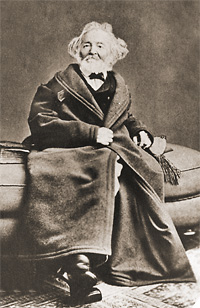 p of their journey. When messengers announced that the Turkish sultan Murat I was killed in the Battle of Kosovo in 1389, the French king Charles VI ordered ”the Paris Christian temples to victoriously ring their bells and a ceremonial service to be held in the Notre Dam”. This beautiful story was written by many, from abbot Saint-Denis in the XIV century, to French writer Milena Noković at the end of the XX century. Decades later, while the Turks advanced towards the center of Europe, the highest European instances almost officially declared Belgrade as the ”front wall of Christianity” (”ante murales christianitatis”) and the ”the bastion of C p of their journey. When messengers announced that the Turkish sultan Murat I was killed in the Battle of Kosovo in 1389, the French king Charles VI ordered ”the Paris Christian temples to victoriously ring their bells and a ceremonial service to be held in the Notre Dam”. This beautiful story was written by many, from abbot Saint-Denis in the XIV century, to French writer Milena Noković at the end of the XX century. Decades later, while the Turks advanced towards the center of Europe, the highest European instances almost officially declared Belgrade as the ”front wall of Christianity” (”ante murales christianitatis”) and the ”the bastion of C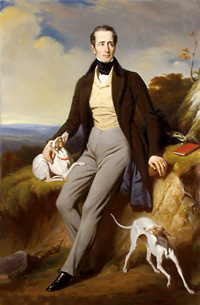 hristianity”. The famous poet Ludovico Ariosto dedicated one chapter of his renowned poem Furious Orlando to the heroic defense of Belgrade. (More than two centuries later, the Italian composer Steven Storas relived a similar subject in the opera Seize of Belgrade, first performed at the London Royal Drury Lane Theater, then in New York and Dublin.) hristianity”. The famous poet Ludovico Ariosto dedicated one chapter of his renowned poem Furious Orlando to the heroic defense of Belgrade. (More than two centuries later, the Italian composer Steven Storas relived a similar subject in the opera Seize of Belgrade, first performed at the London Royal Drury Lane Theater, then in New York and Dublin.)
After the final fall of Serbia into Turkish slavery, when the Serbian nation stepped into its three and a half century long ”frozen time”, different travelers visited these lands. Diplomats, merchants, explorers, spies, adventurers, servants. ”They all had very unclear, often completely wrong concepts about the delimitation of ethnic groups in the Balkans and hardly knew the borders and names of geographical and administrative regions”, wrote Zdenko Levental, who collected and processed British travel accounts through ”our lands” from mid-XV to early XIX century. John Lock and Edmond Spencer were also among the travelers who passed through enslaved Serbian lands or along their borders! Unfortunately, these two great spirits did not have time or a chance to leave any accounts about Serbia. What did others note?
PRIDE OF THE SLAVIC TRIBE
 Whatever may be, from that period of darkness, a curious reader has at its disposal the travel accounts of William Way, Richard Gilford, Henry Ostel, Henry Cavendish and Fox, Fines Morrison, Sir Thomas Glover, William Litge, George Sanders, Peter Mundy, Henry Blunt, John Burberry, Walter Pope, Edward Brown, Paul Rico, George Weiler, Francis Vernon, Sir William Hasey, Simon Clement, Richard Pockock, Richard Bright, George Thomas Cappel… Whatever may be, from that period of darkness, a curious reader has at its disposal the travel accounts of William Way, Richard Gilford, Henry Ostel, Henry Cavendish and Fox, Fines Morrison, Sir Thomas Glover, William Litge, George Sanders, Peter Mundy, Henry Blunt, John Burberry, Walter Pope, Edward Brown, Paul Rico, George Weiler, Francis Vernon, Sir William Hasey, Simon Clement, Richard Pockock, Richard Bright, George Thomas Cappel…
From the slavery, from the ”frozen times”, Serbia reenters histor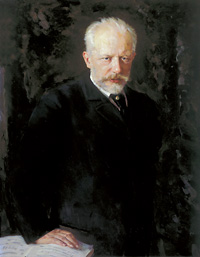 y and geography at the beginning of the XIX century. Europe of the romanticism époque and Serbia at the beginning of its great liberation efforts meet and reveal each other with great enthusiasm. Publishing Serbian folk poems translated into Western European languages provoked a real shock and excitement in European intellectual circles. Jernej Kopitar, Jacob Grimm, Mazzini, Goethe, Walter Scott, Prosper Mérimée, Pushkin, Mickevich, Tomaseo and ”so many others” considered Serbian epic poetry – collected, edited and published by Vuk Karadžić – a first class revelation. y and geography at the beginning of the XIX century. Europe of the romanticism époque and Serbia at the beginning of its great liberation efforts meet and reveal each other with great enthusiasm. Publishing Serbian folk poems translated into Western European languages provoked a real shock and excitement in European intellectual circles. Jernej Kopitar, Jacob Grimm, Mazzini, Goethe, Walter Scott, Prosper Mérimée, Pushkin, Mickevich, Tomaseo and ”so many others” considered Serbian epic poetry – collected, edited and published by Vuk Karadžić – a first class revelation.
Lamartine then published his poems about Serbia.
Mary E. Daram, member of two royal institutes in London, a woman who wrote and published seven books and a series of articles in leading English newspapers and magazines during a quarter of a century, at that time published her significant book Through Serbian Lands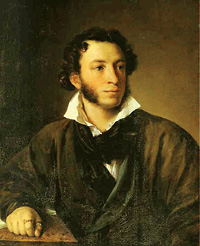 , revealing numerous descriptions and observations about the country, people, surroundings, enemies. , revealing numerous descriptions and observations about the country, people, surroundings, enemies.
Hans Christian Andersen sailed and traveled through several Serbian lands and towns. He published his writings in the book The Poet’s Bazaar, first published much later, in 1842. (More about it in: ”Andersen in Serbia”, National Review, no. 3).
At the beginning of the same decade, in 1841, finishing his series of lectures about Serbian folk poetry at the French college in Lausanne (Friday, March 19, 1841), the greatest Polish poet Adam Mickevich said:
”It is time to part with the history of Serbian literature… That nation will keep on living closed in its past, determined to be the musician and poet of the whole Slavic tribe, not even anticipating that it will one day become the greatest literary pride of the Slavs.”
INVENTING RURITANIA
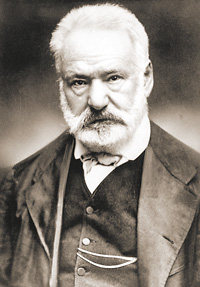 The extraordinary German literature historian, ethnologist and characterologist Gerhard Gesemann, during his journeys and explorations through the Serbian lands, penetrated deeper into the layers of Serbian forma mentis, the Serbian homo heroicus: The extraordinary German literature historian, ethnologist and characterologist Gerhard Gesemann, during his journeys and explorations through the Serbian lands, penetrated deeper into the layers of Serbian forma mentis, the Serbian homo heroicus:
”Only there, in Old Serbia, the historical traditions could have remained fresh and given birth to the national tendencies pervading life and literature of the Dinara people, fulfilled only in our age. Often along with these features, there is the faithfulness to the idea of righteousness, the idea of national and personal freedom and honor, or socialist and political principles. Thus the dangerous unconditionalness of its great politicians and ingenious demagogues, rebels, hayduks, folk heroes and uskoks…”
Traveling through the Slavic Balkans, Alphonse Mucha, the great master of Czech art nouveau and poet of the Slavic Epopee, wrote to his wife:
”The music and songs are so deeply Byzantine and Slavic. As if I’m living in the IX century… For the last two thousand years, nothing essential changed!”
The famous Romanian poet Nikita Stanesku writes the following:
”Air in Serbia is not for breathing, the air here is for singing.” 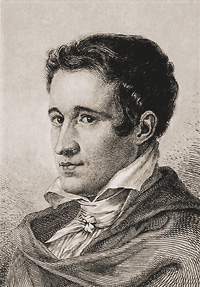
The travel writers in our lands at those times were most often Russians, Brits and Germans. The heritage of travel accounts is enormous. Among the most important authors are Alexander F. Gilferding, Pavel A. Rovinsky, Archibald Payton, Charles Lem, Adelina Polina Irby, Georgina Mure Mackenzie, Felix Kanitz, Gustav Rash…
Unfortunately, along with this abundance, the line of superficial, light and completely ignorant writing from the previous époque continued. If we do not question good intentions, many ugly stereotypes, alive even today, sprouted on the grounds of the superficialness, lightness and ignorance, excellently revealed by Vesna Golsvorti in her study Inventing Ruritania (Yale University Press, 1998). However, at the time it was still benign and ridiculous, because it was not a managing instrument in the hands of spin doctors employed in centers of political power. Those were different times.
For all that time, the turbulent process of Serbian complete liberation continued, a process one hundred fourteen years long (1804–1918). Diplomatic, political, dynastical, intelligence battles, battles on war fronts.
”In the history of this country, there is almost not one single regular page: only battles, wars… The history of Serbia is the history of its martyrness”, wrote Pavel Apolonovich Rovinsky in the European Herald in 1876. ”Free Serbia from its difficult obligation to always be on guard, on the watchguard to protect its borders, and only then you will see what that country can offer you and what the Serbian people will show.”
NIETZSCHE’S SERBIAN MARCH
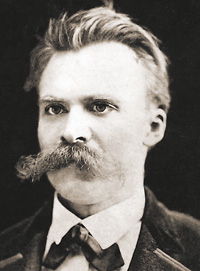 Many people know that the famous Peter Ilyich Tchaikovsky composed the fascinating Serbian-Russian March in the 1880s, adding it to the weapons of the Slavs in the Serbian-Turkish war that took place then. The Russian officer Raevsky wqs a volunteer in this war and he later served Tolstoy as the prototype for the character of Vronsky in Ana Karenina (the church erected as a memory of his heroic death, with an alley brought from suburban Moscow, can be seen today in the village of Gornji Adrovac near Aleksinac, not far from the busy Corrid Many people know that the famous Peter Ilyich Tchaikovsky composed the fascinating Serbian-Russian March in the 1880s, adding it to the weapons of the Slavs in the Serbian-Turkish war that took place then. The Russian officer Raevsky wqs a volunteer in this war and he later served Tolstoy as the prototype for the character of Vronsky in Ana Karenina (the church erected as a memory of his heroic death, with an alley brought from suburban Moscow, can be seen today in the village of Gornji Adrovac near Aleksinac, not far from the busy Corrid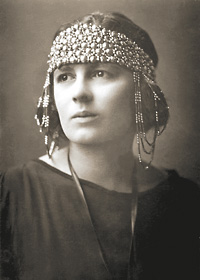 or 10). The famous Dutch lady Jeanne Mercus also came to Serbia as a volunteer. She was wonderfully described by the historian Rene Gremmo. It is also known that Fyodor Mikhailovich Dostoevsky was also engaged in writing about the all-Slavic solidarity and ”support for small heroic Serbia”. However, it is not widely known that, at that time, even Friedrich Nietzsche, celebrating the Serbian warriors for freedom, composed the Serbian March! or 10). The famous Dutch lady Jeanne Mercus also came to Serbia as a volunteer. She was wonderfully described by the historian Rene Gremmo. It is also known that Fyodor Mikhailovich Dostoevsky was also engaged in writing about the all-Slavic solidarity and ”support for small heroic Serbia”. However, it is not widely known that, at that time, even Friedrich Nietzsche, celebrating the Serbian warriors for freedom, composed the Serbian March!
Serbia was later also in the absolute center of attention and on cover pages of the press: at the time of the assassination in 1903, at the time of the crisis which broke out after the Austrian-Hungarian annexing of Bosnia and Herzegovina in 1908, at the time of the Balkan Wars, and especially during World War I. The dramatic destiny of Serbia in that war, ”the Golgotha and resurrection of Serbia”, affected many, big and small, all over the world. Among the immortal pages dedicated to Serbia then, are certainly the ones written by the great Russian writer Leonid Andreyev. Robert Lessing, the US minister of foreign affairs at the time, wrote:
”When the history of this war is written, the most celebrated chapter of it will carry the name ‘Serbia’”.
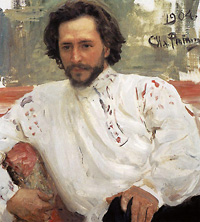 Later, during the XX century, a lot was written about Serbia. Many filmed travel accounts were also made. Many names, titles, references. Let us, however, end this brief review with fragments of the perhaps best travel account of the XX century, written about this country. Rebecca West (Black Lamb and Gray Falcon): Later, during the XX century, a lot was written about Serbia. Many filmed travel accounts were also made. Many names, titles, references. Let us, however, end this brief review with fragments of the perhaps best travel account of the XX century, written about this country. Rebecca West (Black Lamb and Gray Falcon):
”Nothing in my life had such an influence on me as that journey through Yugoslavia. It seemed like following a thread of wool which would take me out of the labyrinth I didn’t know I was built into.” ”There are lands which hide their secrets from travelers for days and don’t show him anything except their exterior… Then, suddenly, they throw him the key and tell him to go wherever he wants and see whatever he can see. This country is like that.”
The epilogue of this unforgettable book was written in London in the spring of 1941. Watching bombs falling on her burning city, she wrote: ”While I was thinking about the possible invasion, or whenever a bomb would fall nearby, I often prayed: Lord, let me be strong the Serbian way!”
***
Hospitality
The English lady Vivian Herbert, in her book Serbia, Paradise of the Poor, in the late XIX century (1897), affectedly writes:
”When you visit anyone in Serbia, first they bring a tray with one or two dishes of fruits in jelly, one dish for spoons divided into two parts (one full and the other empty), and a certain number of glasses of water. The tray is usually brought by a charming daughter from the house, or the lady of the house, which represents a special honor. Everyone in Serbia has a soul full of hospitality. A traveler in any part in the inland is heartily welcomed and richly hosted…”
***
Return
At the peace conference in Versailles in 1919, when World War I officially ended, George Clemenceau said:
”At the conclusion of our Peace Conference, I must – before I come down from this podium – state my great sorrow because a great historical name: SERBIA is disappearing from the international political scene.”
Serbia then became the piedmont of Yugoslavia and remained such, in different forms, until 2006, when it again carried its own name.
***
One Witness: the Whole World
Victor Hugo wrote the famous sentences about the sufferings of Serbia:
”They are killing a nation.
Where?
In Europe.
Is there anyone to testify about it?
There is one witness:
The whole world.” |
